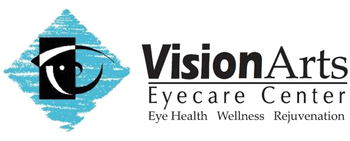Fulton, MO
Cataract
Surgery Co-Management

Fulton, MO
Cataract Surgery Co-Management
Cataracts are a common eye condition that affects many people as they age. At VisionArts Eyecare Center in Fulton, our experienced eye doctor can diagnose cataracts and recommend treatment to prevent vision loss. If surgery is needed, we will refer you to a trusted ophthalmologist in your area and provide you with pre- and post-operative care.
What are cataracts?
Cataracts are a common eye condition that can affect anyone, but especially those over 60. They occur when the clear lens in the eye becomes cloudy or opaque, which can make it difficult to see clearly. Your vision gets hazy, and you may feel like you’re looking through a foggy window.
Risk factors for cataracts
There are several risk factors for cataracts, including:
- Aging is the most common risk factor for cataracts, with most people developing them after the age of 60.
- Genetics can play a role in the development of cataracts, so if someone in your family has had them, you may be at a higher risk.
- Lifestyle factors such as smoking, excessive alcohol consumption, and poor nutrition can increase the risk of cataracts.
- Certain medical conditions such as diabetes, high blood pressure, and obesity can also increase the risk of developing cataracts.
- Exposure to UV radiation from the sun and other sources, such as tanning beds, can raise your risk for cataracts.
Symptoms of cataracts
Cataracts can cause a variety of symptoms, including:
- Blurry or hazy vision
- Increased sensitivity to glare, especially from headlights while driving at night
- Difficulty seeing in low-light conditions
- Colors appearing less vivid or yellowed
- Double vision in one eye
- The need for brighter light when reading or doing close work
- Seeing halos around lights
If you’re experiencing any of these symptoms, it’s important to schedule an appointment with your eye doctor. Getting a proper diagnosis and treatment plan from your eye doctor is essential to maintaining healthy vision for life.
Diagnosing cataracts
At VisionArts Eyecare Center in Fulton, our eye doctor can diagnose cataracts and a range of other eye diseases during a comprehensive eye exam. During the exam, our optometrist will perform a series of tests to assess your overall eye health. These tests may include a slit lamp exam, which uses a gentle and non-invasive low-power microscope to check for cataract formation and other signs of eye disease.
Treatment for cataracts
If you’re diagnosed with cataracts, treatment will depend on the level of visual impairment they cause. If your cataracts are minimal and not impacting your vision, no treatment may be needed yet. Our eye doctor may ask you to look out for increased symptoms and recommend regular comprehensive eye exams to track any changes in your condition.
Immediate surgery isn’t always necessary. The decision to have surgery depends on how your vision affects your safety and the safety of others, your independence, and your ability to read computer screens, books, or watch television.
If you’re experiencing cataracts that are significantly impacting your vision and making it difficult to perform everyday tasks, cataract surgery may be the best course of action. Our eye doctor will work with you to determine your readiness for surgery and refer you to a trusted ophthalmologist.
During the procedure, the ophthalmologist will remove your existing lens and replace it with a new artificial intraocular lens (IOL). After cataract surgery, you should expect your vision to improve within a few days or weeks. Our eye doctor at VisionArts Eyecare Center will schedule follow-up visits with you to monitor your progress and recovery.
Cataract prevention
While there is no guaranteed way to prevent cataracts, there are steps you can take to reduce your risk. These include wearing sunglasses with UV protection when outside, eating a diet rich in antioxidants, quitting smoking if applicable, and getting regular exercise. You can also lower your risk by managing any preexisting conditions like diabetes and using protective eyewear when engaging in sports or other potentially dangerous activities.
The best form of prevention is to schedule regular comprehensive eye exams with a qualified optometrist. Our eye doctor is here to help you maintain healthy vision for life, and that includes diagnosing cataracts and providing pre- and post-operative care for cataract surgery. If you are concerned about cataracts, call us today to schedule your comprehensive eye exam at our office in Fulton, MO.
